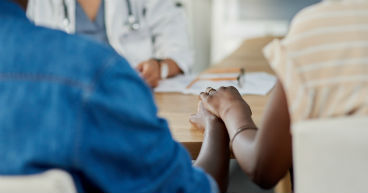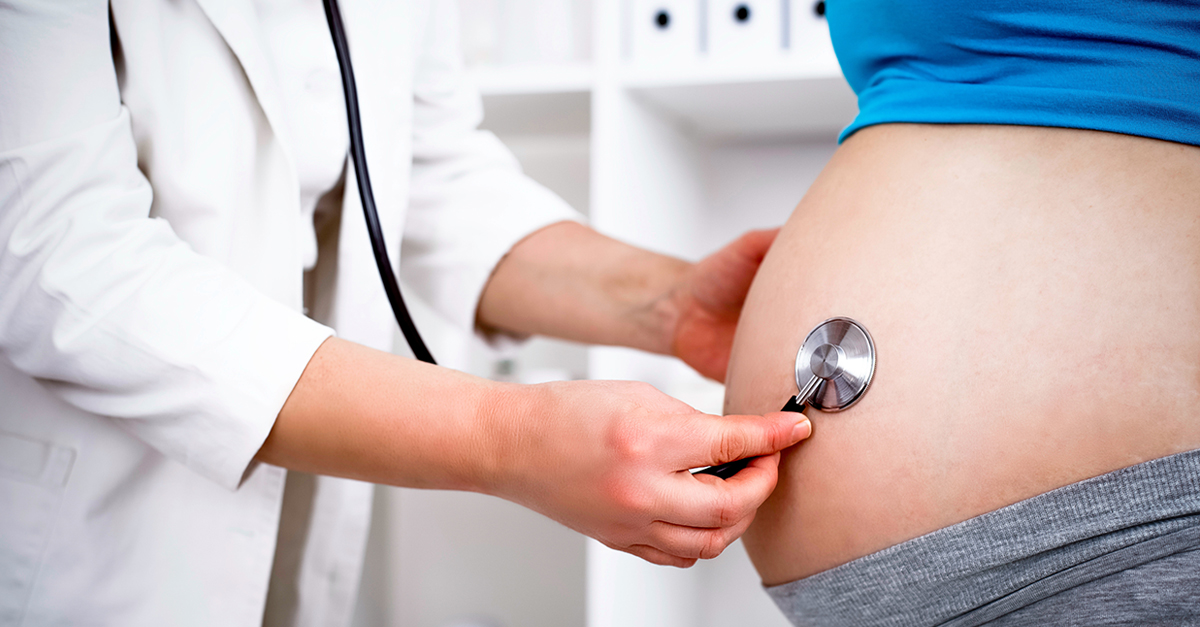
Getting a cancer diagnosis during pregnancy may cause one of the most dramatic emotional roller-coaster rides imaginable. The overwhelming joy of bringing a child into the world is quickly overtaken by the stressful challenges and uncertainty of facing cancer.
And the questions:
- Will I survive to see my son or daughter grow up?
- Will cancer treatments harm my baby?
- Will I be able to breastfeed my child?
Receiving the news of a cancer diagnosis during pregnancy is rare, but that doesn’t make it any less scary. Yet the earlier a woman learns she has cancer during pregnancy, the better the potential outcomes for mother and child.
That’s women should never ignore any abnormal symptoms during pregnancy, Joshua Cohen, MD, FACOG, FACS, a gynecologic oncologist and Medical Director of the Gynecologic Cancer Program at the Lennar Foundation Cancer Center at City of Hope® Orange County, said during a recent interview with Yahoo Life.
These may include unusual bleeding, unexplained pain or new lumps or bumps. Though they may resemble pregnancy symptoms, they should always be checked out.
This will explore:
- Coping with a cancer diagnosis during pregnancy
- Risks of cancer and pregnancy
- Breastfeeding and breast cancer
If you or a loved one have been diagnosed with cancer and want to get a second opinion of the diagnosis or more information about treatment options call us or chat online online with a member of our team.
Coping with a cancer diagnosis during pregnancy
Cancer during pregnancy isn’t common. In fact, it only affects about 1 in 1,000 pregnant women each year. But the incidence has gradually increased in recent decades.
One of the contributing factors is more women choosing to have children at older ages. Yet researchers believe age plays only a minor role in the recent increase in cancer during pregnancy. Instead, the Breast Cancer Research Foundation, which notes that the rate of breast cancer in pregnancy is increasing, says the uptick is likely due to a combination of age and better diagnosis of the disease.
Still, while diagnostic tools and screening methods have improved for cancer in recent years, detecting cancer during pregnancy is often more complicated due to the changes a woman’s body undergoes, like sometimes lumpy breasts.
Also, common pregnancy symptoms like fatigue may mask symptoms of certain types of cancer, such as leukemia and lymphoma.
For these reasons, when cancer develops during pregnancy, it’s often diagnosed at a more advanced stage.
Risks of cancer and pregnancy
In addition to being more challenging to detect, cancer during pregnancy is often more complicated to treat. It requires extra individualization, Dr. Cohen says in the Yahoo Life article.
For example, cancers that grow quickly or have spread to other areas of the body (called metastasis) may require treatment right away, but it may be OK to delay treatment for other slow-growing cancers or cancers that haven’t yet spread.
“It’s the patient’s journey,” Dr. Cohen says, noting that treatment decisions often weigh risks to both the mother and the baby, and account for factors like the specific diagnosis, the risk of metastasis and the baby’s gestational age. “It’s not a one-size-fits-all approach.”
Despite facing a potentially tougher road to diagnosis and treatment, women who are pregnant and develop cancer have similar outcomes compared to those who aren’t pregnant and have cancer. That means women who are pregnant survive cancer at relatively the same rate as women who are not pregnant.
Part of that is because many treatments for cancer are considered safe during pregnancy, although an oncologist may advise against certain therapies during the first trimester. Chemotherapy, for instance, is a treatment usually not given during the first 12 weeks of pregnancy but is considered safe during the second and third trimesters.
While surgery may be performed safely during certain times of pregnancy, hormone therapy and targeted drug therapies are usually not given. And radiation therapy may be an option only in circumstances when radiation is delivered to an area away from the pelvic region so that the fetus is protected.
Can having cancer while pregnant affect the baby?
Most cancers do not spread to the baby. In very rare cases, cancer reaches the placenta and spreads to the fetus. However, that’s extremely uncommon and typically only occurs in cases of metastatic melanoma.
Still, as with radiation therapy treatment, imaging tests that use radiation are generally not advised because they pose risks to the fetus, especially during the first trimester. A thyroid scan, for example, which is a test for thyroid cancer, is usually not recommended during the first 12 weeks of pregnancy because it uses radioactive iodine.
Breastfeeding and breast cancer
For women who are going through treatment for breast cancer and have just had a baby, most doctors won’t advise breastfeeding. That’s because certain medications used to treat cancer, such as hormone therapy, may be passed on to a baby through breast milk.
Chemotherapy medications may also require time to leave the woman’s system before she’s able to breastfeed.
In addition, if she has had breast surgery with or without radiation therapy, she may have trouble producing as much milk in the affected breast. She also may have structural changes in the breast as a result of surgery that make breastfeeding painful or makes it harder for a baby to latch onto the breast.
Radiation therapy may also damage breast tissue extensively—so much so that milk ducts won’t be able to produce much milk. In that case, women may consider supplementing breastfeeding with formula.
Each woman’s situation is different, though, and only her doctor will know when and if it’s safe to breastfeed.
Is it OK to breastfeed after mastectomy?
Women who have had a mastectomy to remove part or all the breast may have trouble breastfeeding or producing milk. That’s due to removal of breast tissue and the damage it may cause to nerves involved in lactation.
Breastfeeding from the unaffected breast should still be possible, although milk production may be limited at first.
Because a double mastectomy removes both breasts, it also leaves a woman without milk ducts, which makes breastfeeding impossible—even if she’s head breast reconstruction surgery. But she may still bond with her baby in other ways, such as feeding them a bottle and skin-to-skin contact.
Women who have a lumpectomy to remove a breast cancer tumor and surrounding tissue may be able to produce some milk from the affected breast. This sometimes depends, however, on whether she has had radiation therapy, as well.
Women who haven’t yet undergone surgery for breast cancer also may be advised to avoid breastfeeding. That’s because breastfeeding may reduce blood flow to the breasts and make them smaller.
Again, every woman’s experience is different. Women should talk to their doctor about their unique situation.
If you or a loved one have been diagnosed with cancer and want to get a second opinion of the diagnosis or more information about treatment options call us or chat online online with a member of our team.


